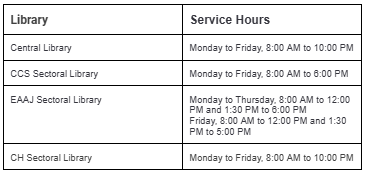The Professional Master's Degree in Foreign Languages at the State University of Londrina has an excellent administrative and teaching infrastructure.
CENTER OF LETTERS AND HUMAN SCIENCES
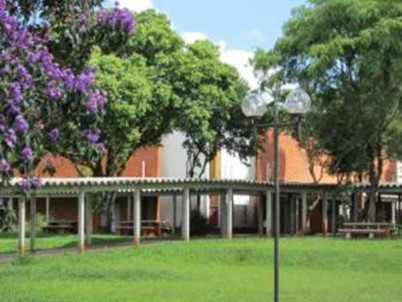
MEPLEM's teaching activities take place primarily at the Center for Letters and Human Sciences at UEL, which is made up of four infrastructure blocks. BLOCK A has 14 amphitheaters and one larger amphitheater. BLOCK B has the secretariats of the seven departments, the center's general secretariat and the postgraduate secretariat. BLOCK C has 18 classrooms with a data show and projection screen, the Distance Learning Center (NEAD), the Educational Technology Laboratory (LABTEC) and the New Technologies Laboratory (LANTECH), which is available for teaching, research and extension activities by appointment, providing students with 19 computers, in addition to the teacher's computer, equipped with cameras and cable internet. The IRCH BLOCK (Institute of Reference in the Human Sciences) contains the Documentation and Historical Research Center, the Self-Study Center (CAE), the Language Teaching Advisory Center (NAP), 6 classrooms of the institution's Language Laboratory; 2 research rooms of the Department of Letters and Human Sciences (for shared use by teachers, students of scientific initiation and teaching and extension projects, in addition to postgraduate students) and a multimedia room of the Paraná Fala Idiomas Program (PFI).
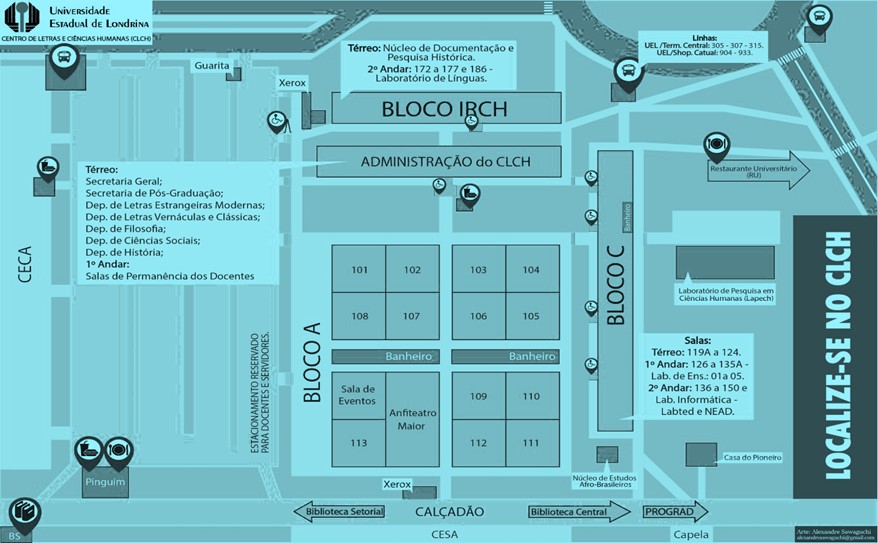
MEPLEM, in partnership with the Language Laboratory and the PFI, regularly uses rooms 172 and 186 in the IRCH BLOCK and room 128 in BLOCK C. Room 172 is equipped with air conditioning, a projector with an audio system, a projection screen, a whiteboard, an internet connection via Wi-Fi and a notebook for the teacher and a 55-inch flat-screen TV. In partnership with the PFI, MEPLEM uses room 186, which has 20 laptops for students, 20 headphones, air conditioning, a projector with an audio system, a projector screen, a whiteboard, an internet connection via Wi-Fi and cabling, and a laptop for the lecturer. The program also has access to room 128, which has been designed with a customized acoustic system to be used for proficiency tests. The Events Room and the larger CLCH Amphitheatre in BLOCK A can be used for program events by prior arrangement.
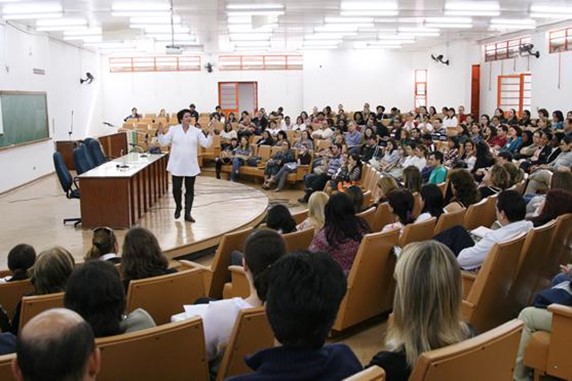
CLCH Main Amphitheater
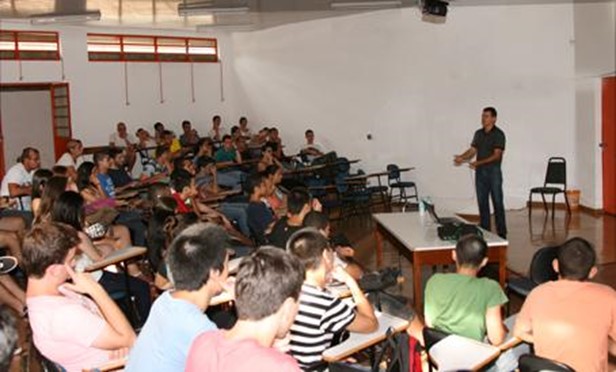
CLCH Events Room
The MEPLEM, in partnership with the Language Laboratory and PFI, regularly uses rooms 172 and 186 in BLOCO IRCH and room 128 in BLOCO C. Room 172 is equipped with air conditioning, a projector with an audio system, a projection screen, a whiteboard, Wi-Fi internet connection, a laptop for the professor, and a 55-inch flat-screen TV. In collaboration with PFI, MEPLEM uses room 186, which includes 20 laptops for students, 20 headsets, air conditioning, a projector with an audio system, a projector screen, a whiteboard, internet connection via Wi-Fi and cable, and a laptop for the professor. Similarly, the program has access to room 128, which was custom-designed with an acoustic system for proficiency testing. For program events, the Event Room and the Main Auditorium of CLCH in BLOCO A can be used upon prior scheduling.
LABORATÓRIO ESCOLA DE PÓS-GRADUAÇÃO (LABESC)
MEPLEM may also utilize the structure of LABESC, a building constructed with funding from FINEP to provide a suitable environment for the academic activities of the Stricto Sensu Graduate Programs from various Study Centers at UEL, as well as Research Groups and some activities supporting Research and Graduate Studies.
The LABESC rooms were designed to provide a suitable environment for conducting research meetings, seminars, workshops, and symposiums organized by researchers, students, and graduate programs. The goal is for these spaces not to be used as traditional lecture-focused classrooms with the teacher as the central figure, but rather to foster the sharing of information, discussion of readings, and exchange of knowledge.
The activities supporting Research and Graduate Studies hosted at LABESC are as follows: the Ethics Committee for Research Involving Human Beings (CEP-UEL); the Ethics Committee for the Use of Animals (CEUA-UEL); the Organizing Committee of EAIC/UEL (Annual Scientific Initiation Meeting); and the Semina Journals (Agrarian Sciences, Biological/Health Sciences, Exact/Technological Sciences, and Social/Human Sciences).
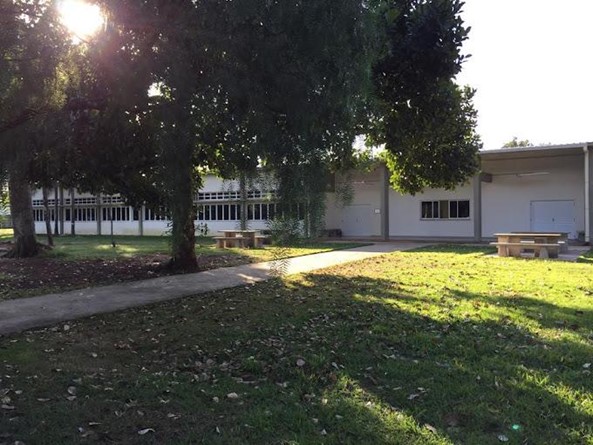
LABESC building
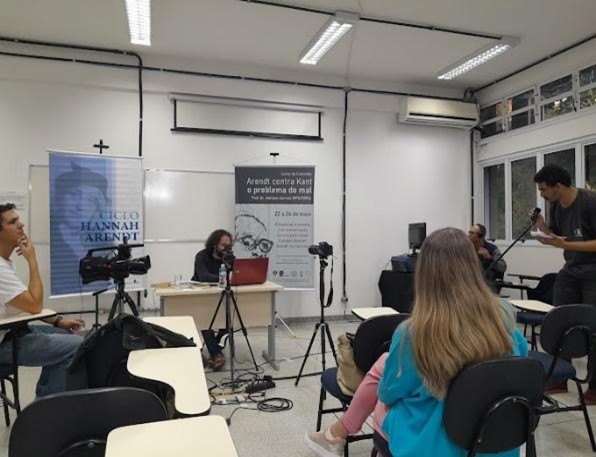
LABESC classroom
HUMAN SCIENCES RESEARCH LABORATORY (LAPECH)
MEPLEM can also carry out its activities in the new research facility designated for CLCH and the 7 graduate programs of the study center. Named the Research Laboratory in Human Sciences (LAPECH), the building covers an area of 1,112.68 m².
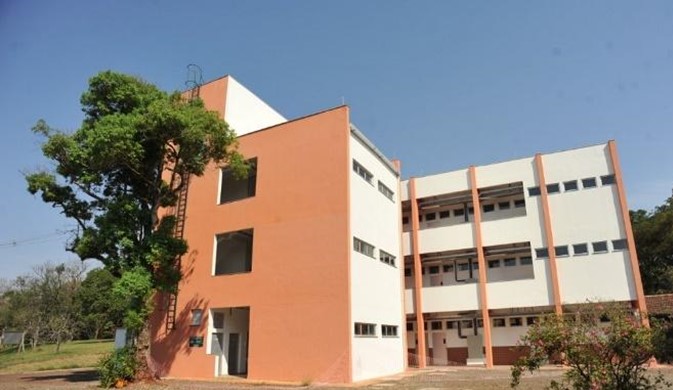
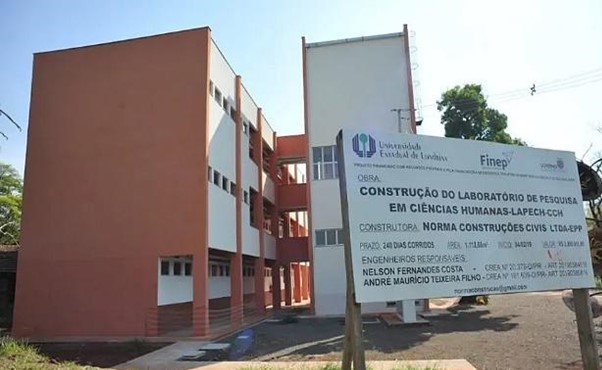
With over a thousand square meters of constructed area and an investment of R$ 2.3 million, the Research Laboratory in Human Sciences (LAPECH), part of the Center for Letters and Human Sciences (CLCH), was officially inaugurated on May 23, 2022, to support the graduate programs of four study centers at UEL. The new facility is expected to enhance and optimize the spaces dedicated to research activities, increasing the number of integrated projects between professors and students from various fields of knowledge.
As a multi-user laboratory, LAPECH will serve researchers from the Centers for Letters and Human Sciences (CLCH), Education, Communication and Arts (CECA), Applied Social Studies (CESA), and Exact Sciences (CCE). Consequently, it can be used by study groups and for graduate program events.
LAPECH is divided into thematic nuclei in order to allow for greater integration between research and, consequently, greater performance in academic production. These include:
1) Center for Teaching and Learning in Human Sciences and Scientific Education (NEACHEC),
2) Center for Cultural Studies (NEC),
3) Center for Image Studies (NEI),
4) Center for Studies in Science, Technology, and Society (NECTS),
5) Center for Socio-Political and Legal Studies (NESPJ), and
6) Center for Information and Communication Technologies in Human Sciences (TICCH)
MEPLEM participates in the activities of NEACHEC, which is composed of the following thematic sub-centers:
1) Social Sciences: Culture, Power, and Society;
2) Education: a) Knowledge and Practices, and b) Learning and Human Development in school contexts;
3)Science Teaching and Mathematics Education: a) Knowledge Construction in Science and Mathematics, and b) Teacher Training in Science and Mathematics;
4) Language Studies: a) Teaching/Learning and Teacher Training in Portuguese and Other Languages, and b) Teaching/Learning and Teacher Training in Foreign Languages;
5) Geography: Socio-Spatial Dynamics; and
6) History: History and Teaching.
CENTRAL LIBRARY | SECTORAL LIBRARY
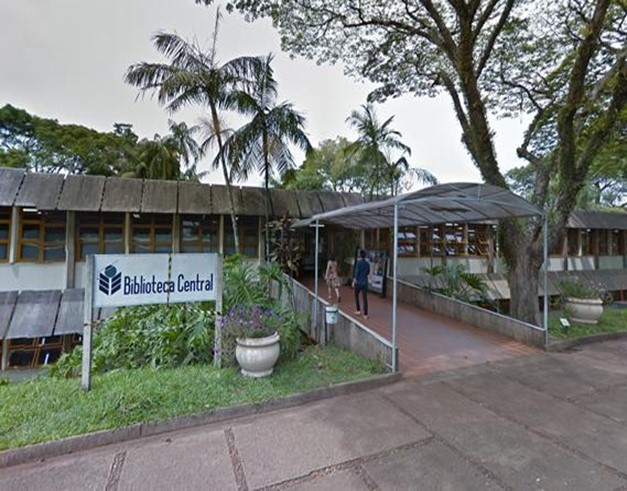
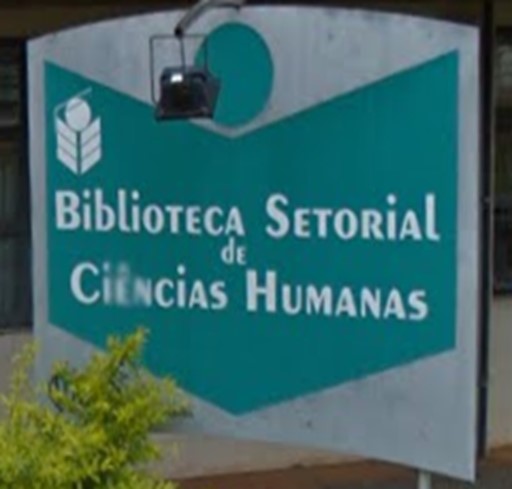
The Library System of the State University of Londrina (UEL) is coordinated by the Central Library, which functions as a Support Unit of UEL and is administratively linked to the Rector’s Office, under delegation to the Vice Rector. Its organizational structure comprises the Deliberative Council, the highest decision-making body within the Library System, and the Library Committee, composed of representatives from the university community.
The Central Library centralizes, in a single physical space, the entire collection related to the Biological Sciences, Dentistry, Exact Sciences, Agrarian Sciences, and Technological fields. The Sectoral Library of the Health Sciences Center (CCS) serves the courses in Medicine, Nursing, Pharmacy, and Physiotherapy. The Sectoral Library of the Legal Affairs Application Office (EAAJ) supports professors and legal interns (4th and 5th year students of the Law course). The Sectoral Library of Human Sciences provides services to students and professors in the humanities.
In addition to the university community (students, professors, and staff), the Library System also serves the external local and regional community, offering open access to its facilities, bibliographic collection, and services. The mission of the library is:
"To promote access, retrieval, and transfer of information to the entire university community in an up-to-date, efficient, and qualified manner, aiming to contribute to the professional education of citizens and, thus, collaborate in the scientific, technological, and cultural development of society as a whole."
The UEL libraries (Central and Sectoral) are computerized, offering search terminals for catalog research, real-time reservation requests, and interlibrary loans, as well as access to the CAPES journal portal.
Table 1 - Opening Hours
